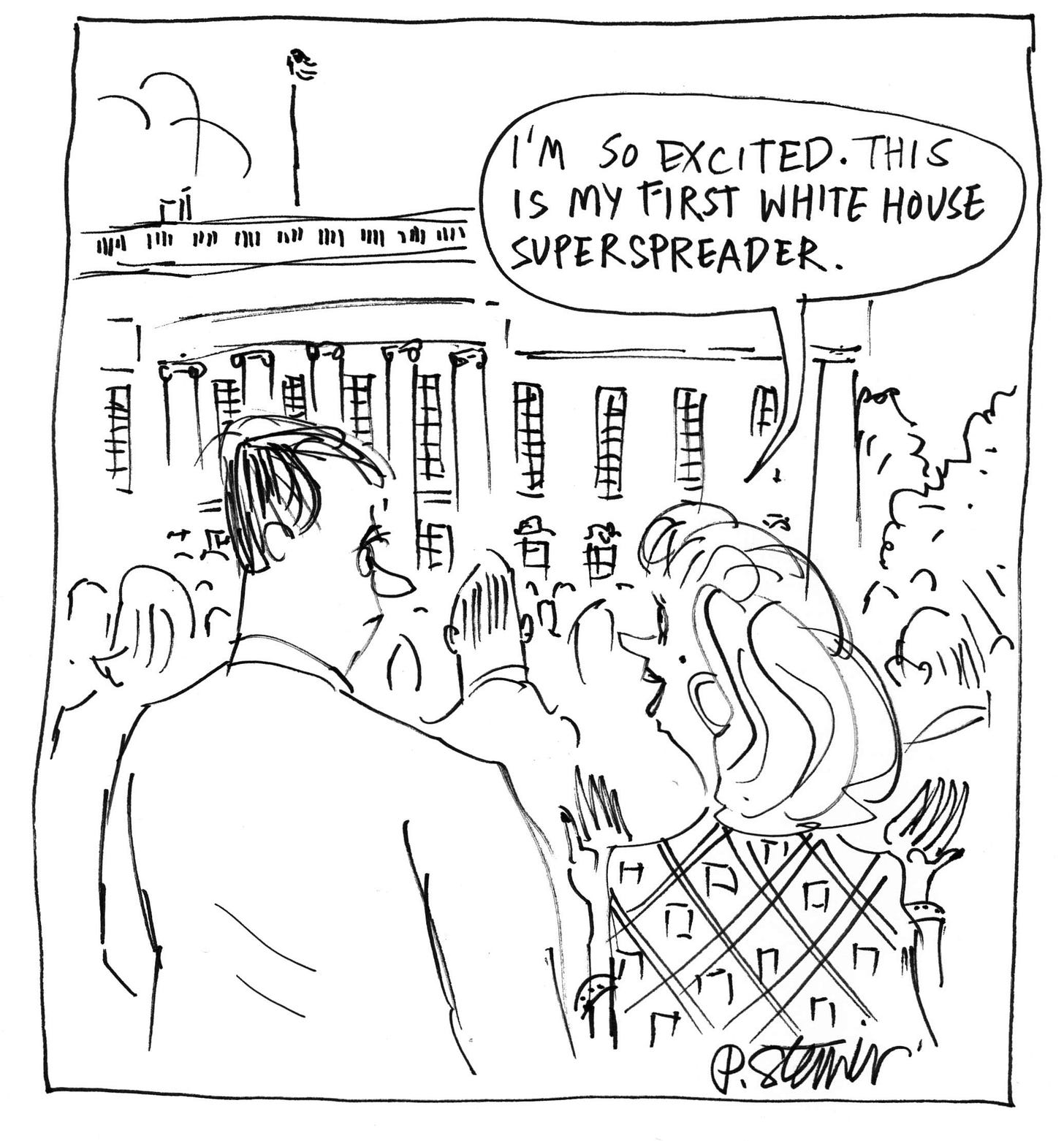
1. Tyranny of the Majority. And the Astros.
This has been a week, so I want to close it out by getting off the news for a minute.
First, I want to—God forgive me—defend Mike Lee.
Lee sent out a bunch of not-especially-nuanced tweets about America not being a democracy and about democracy being less important than liberty, peace, and prosperity.
But here’s the thing: Lee is right.
Let’s start at the 30,000 foot view: Why democracy? As regular readers know I am . . . clear-eyed . . . about the collective wisdom of the great and good American people. I mean, just take a look around.
That said, the truism is true: Democracy is the least-worst form of government.
But the form of government is only a means to an end. And the end result that we want is, roughly speaking, liberalism. By which I don’t mean AOC-Green New Deal political liberalism, but cultural liberalism: peace, liberty, mutual toleration—basically the goods Mike Lee laid out.
“Democracy” is not always conducive to these good. Victor Orban was elected. Recep Erdogan was elected.
The results of the democratic election in Germany in July of 1932 were not great for liberalism.
So the system the Founders devised was engineered to try to balance out the rights of both the majority and the minority.
Is it okay for 50.1 percent of the people to change the tax code? Yes.
Is it okay for 50.1 percent of the people to create an entirely new social welfare program that fundamentally changes the relationship of the citizenry to the government? No.
And by “not okay” I mean “likely to cause long-term harm to the body politic.”
The republican form of government we have is designed so that small majorities can make minor changes in reasonably short fashion—but that big changes take time and require much larger majorities.
This is a good thing!
Because you’re not in the majority for forever.
So give Mike Lee a break—at least on this one. Our system was designed so that a small-d democratic majority could govern our society, rather than a tiny minority (the British monarchy). But it was also designed with one eye on the perils of rank majoritarianism and a desire to protect the minority, too.
Don’t look now, but the Houston Astros are back in the ALCS.
This is bad. Very, very bad.
The 2020 season was supposed to be baseball’s karmic revenge against the Astros. They were going to get beaned and brushed back until they apologized. They were going to be booed mercilessly. Robbed of their power to cheat, they were going to fall back into the pack and out of championship contention.
Instead, what happened is this:
The commissioner stepped in to punish other teams for throwing at the Astros.
Not a single game was played in front of a live crowd.
The Astros finished sub-.500. But still snuck into the playoffs, because of a COVID-expanded playoff system.
WTF.
And now, after winning two ludicrously short series, the Astros are four wins away from the World Series.
But wait. It gets worse.
It is entirely possible that they will face New York in the ALCS.
Which would mean that every honorable man, woman, and child in America would be forced to root for . . . the Yankees.
I’m wearing this shirt for the rest of the year.

2. Matt Levine
I’ve been pushing Matt Levine on your guys since the start. Now the NYT has a giant profile on him. IRL, he’s even better than I dared hope:
One classmate, the journalist Elie Mystal, had a lot to say about Mr. Levine as an undergraduate — that he was the valedictorian of their class; that he partied, too; that he once suggested applying Etruscan decision-making processes to the question of what to do next during a late night out — but he placed a special emphasis on the footnotes.
“All of the knowledge that Matt has is available to him at all times,” Mr. Mystal said. The footnotes, he said, are the only way Mr. Levine can convey so much to his readers in a space as small as an email.
(Asked about the Etruscans, Mr. Levine said he thought Mr. Mystal might be referring to one of his favorite anecdotes from Herodotus. It was actually about the Persians, he said. He fetched his copy of “The Histories” and read it to me.) . . .
In 2007, he took a position at Goldman Sachs, applying his knowledge of corporate law to the financial markets. He structured derivatives agreements that let companies and other Goldman clients buy and sell stocks using a variety of methods meant to help them reduce their taxes or get a better price. There was another bank employee who was also named Matt Levine, a lawyer who sometimes worked on the same deals.
“Once I did a client call with him,” Mr. Levine said. “Terrible. ‘This is Matt Levine at Goldman, and also Matt Levine at Goldman.’”
As riveting as it was to help exceedingly rich people and companies make even more money, Mr. Levine was not happy. “I felt both that the job was bad and that I was bad at it,” he said. Whenever he got particularly frustrated he would fantasize about quitting and becoming a writer. . . .
By 2011, Mr. Levine had decided to leave Goldman. Above the Law’s sister blog — Dealbreaker, focusing on Wall Street gossip — was hiring. Mr. Levine got the job, paying something north of $50,000. . . .
[In 2013] David Shipley, the editor of the billionaire-backed Bloomberg opinion desk, took Mr. Levine to lunch and offered him a job. “It was like this long, Matt-type silence, and then kind of a sigh, and then: ‘OK,’” Mr. Shipley recalled.
3. Friday Steiner





